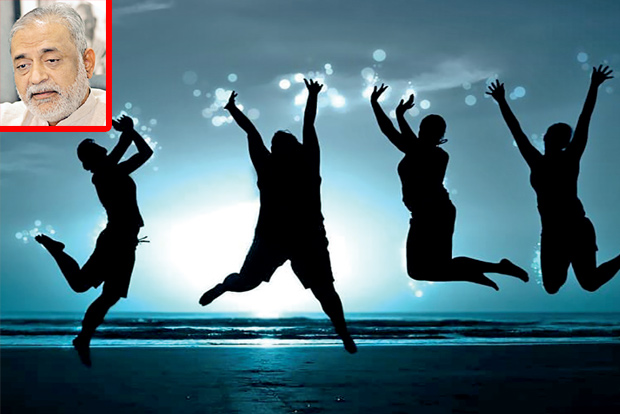How will you contribute to the future of humanity?
IT may surprise you to know that we are all connected. You can see it in everyday life everywhere if you look. Even criminals are so well connected – the black marketeer in Assam knows how much tea he has to stock in his warehouse, and when he releases that information to somebody in south India or Dubai, they do a deal.

Chennai
They are connected to profit. The members of terrorist organizations are also well connected. Members of organised crime rings respect each other so much that they share data: ‘I have a contract with this labour union. Go to this department and finalise the deal. That is your part.’
So, what about spiritual people? Are we well connected and supportive of each other? It does not require much from our side. We just have to let things happen without interfering in the process. The connection will automatically happen when we purify our hearts. We will become a part of the entire scheme of things, as our consciousness becomes more generous and shifts from “me to us.”
The Heartfulness practices bring about this purification of the heart. When we practise, we transform ourselves, and when each individual does so it brings a change to humanity that will also be passed on to the next generation. The extent to which we purify ourselves is the extent to which we will contribute to the future course of humanity. So our inner preparation has a great echo into the future. The collective consciousness that we create has its impact. By meditating regularly and effectively, wherever we are, together or alone, the impact will be felt beyond our immediate environment. Eventually, it will benefit all of humanity.
Our power is no less than the original divine power because at the very root of the human mind is the original stir from the time of creation. And it continues to work. Now, do we want to use that power for our good, and the good of humanity? Here is a classic example of how we struggle with this: When Lord Krishna approached Duryodhana before the Mahabharata war, he tried to convince Duryodhana to stop his plans to fight. Duryodhana replied, ‘Look, Krishna, I know who you are, and I know your abilities. I may lose this war.’ He then said, ‘I also know what is good, and I know what my duty is, but I cannot compel myself to act in that direction. I am well aware of what I must not do, yet I cannot stay away from those things.’
Sometimes we are just like Duryodhana — we know what is right, but we convince ourselves that we can’t do it, or we do the things we know we shouldn’t. Even when we pray to God or our Guide, we may still end up doing the wrong thing. Why? Because our thought force is so powerful that even the great Guides fail in their efforts to change us. None of us can be forcefully changed against our will. Are we participating in this process of change willingly and joyfully? Deep down, do we want it? We must have the desire for it.
Adapted, with permission from the book, Designing Destiny by Kamlesh D. Patel
— Kamlesh D. Patel is the fourth Heartfulness Guide
Visit news.dtnext.in to explore our interactive epaper!
Download the DT Next app for more exciting features!
Click here for iOS
Click here for Android



